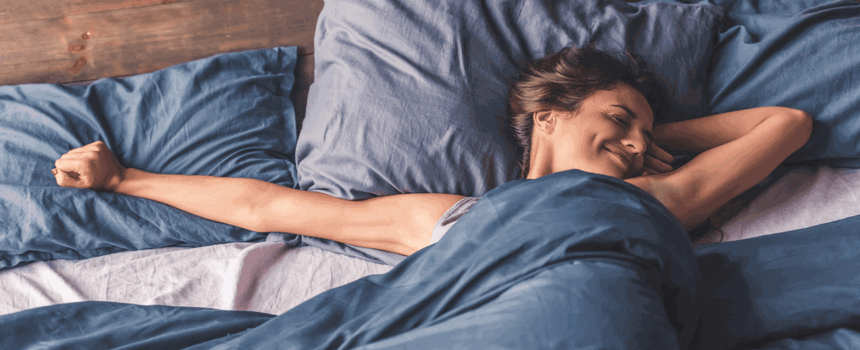
How to sleep your way to better health
In a world where we are ‘always on’ with technology, working longer hours and juggling endless deadlines, it’s easy for sleep to be the first thing that suffers.
A recent study found that lack of sleep is a growing problem in Australia, costing the economy more than $66 billion in lost productivity.
Sleep is a vital part of staying healthy.
A number of research studies have looked at the importance of a good night’s sleep, finding it can impact your brain function, waistline, fertility, immune system, hormone balance and your risk of lifestyle diseases like diabetes.
In fact, lack of sleep can even make you feel hungrier. When you don't get enough sleep, your level of ghrelin (a hormone that makes you feel hungry) goes up and your level of leptin (a hormone that tells your brain you are full) goes down.
So how much sleep do you need?
According to the Sleep Health Foundation between 7-9 hours of sleep is ideal for the average adult, but everyone is different. Some people can cope with much less sleep. The amount of sleep you need can also change during different life stages.
What can I do to get a better night’s sleep?
There are some simple steps you can introduce into your day to help promote a good night’s rest and improve your health:
Exercise regularly to boost your energy levels throughout the day and prepare your body to wind down by choosing quieter activities after dinner.
Make sure you stay well hydrated throughout the day, although ease up on drinking before bedtime to minimise bathroom trips from breaking up a good night’s sleep.
Turn off the screens, including TV, radio and mobiles to help your mind and body switch off well before bed time. Try avoiding having any technology in your bedroom at all!
Can I eat my way to better sleep?
Both what you eat and when you eat can affect your sleep. According to the Sleep Health Foundation, it is best to allow 2-3 hours between having your last meal of the day and going to bed. The aim is to not go to bed hungry, but not be too full from dinner either.
Eating and drinking to help promote a better sleep goes beyond avoiding caffeine and heart-burn inducing foods. A number of studies have found a range of nutrients may help you to fall asleep faster, and sleep more soundly.
Selenium
Research has found that a deficiency in selenium may play a role in sleep abnormalities. It is also an important nutrient for immune system function. Found in: Brazil nuts, sunflower seeds. For more tips on supporting your immune system visit our Immunity Hub.
Magnesium
Studies have shown that having enough magnesium in your diet may be an effective way to improve sleep quality. Found in: Green leafy vegetables, such as spinach and kale, nuts and seeds and legumes.
Vitamin D
According to studies published in the Journal of Clinical Sleep Medicine, there has been a strong correlation found between vitamin D deficiency and excessive sleepiness during the day. Found in: Mushrooms and some fortified milks, such as soy milk.
Melatonin
Melatonin is a hormone produced by the brain and is linked with how our body prepares for sleep. Found in: Whole tart cherries, bananas, pineapples and oranges.
Getting a regular good night’s sleep is crucial to living a healthy, happy life. If you’ve tried these tips and are still having trouble sleeping, consult your health care professional.

The latest nutrition advice, plus health and wellness tips delivered to your inbox monthly